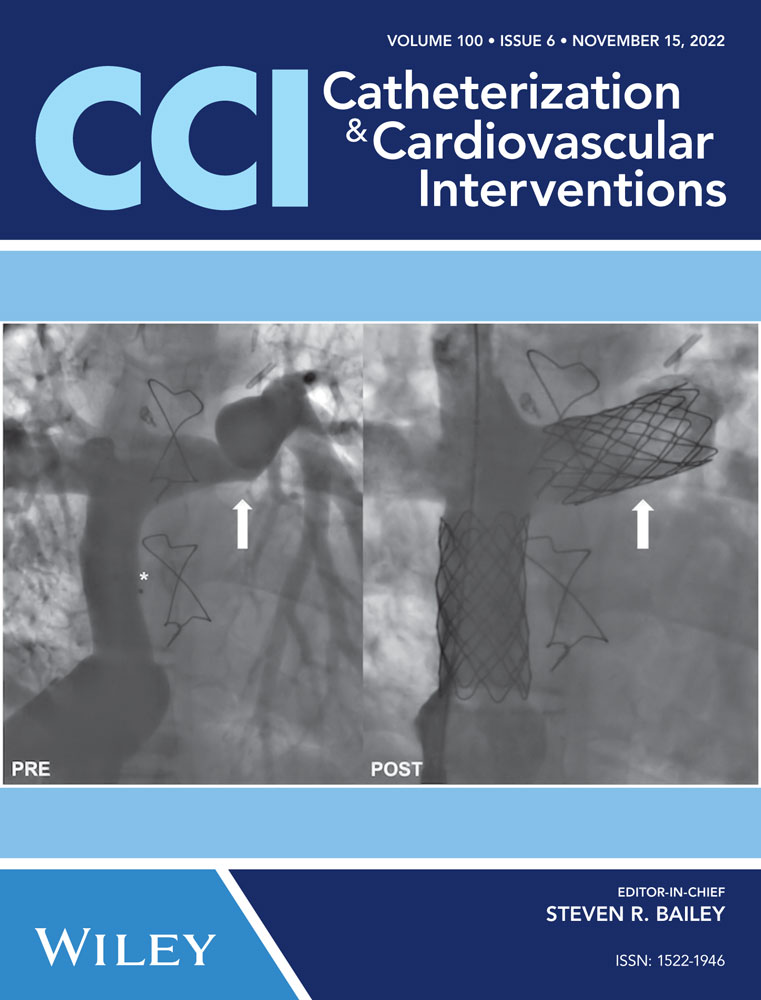Impact of intravascular ultrasound-incomplete stent apposition on stent failure
Abstract
Objectives
This study aimed to investigate the relationship between immediate incomplete stent apposition (ISA) detected by intravascular ultrasound (IVUS) and midterm stent failure.
Background
Stent failure is one of serious clinical events related to percutaneous coronary intervention (PCI). The previous studies using optical coherence tomography showed that ISA could be associated with stent thrombosis. However, the association between immediate ISA detected by IVUS and stent failure has not been fully investigated.
Methods
We included 396 lesions that underwent elective PCI, and divided those into the appropriate stent apposition (ASA) group (n = 290) and the ISA group (n = 106). The primary endpoint was stent failure, which was defined as a composite of ischemia-driven target lesion revascularization and stent thrombosis. We compared clinical and lesion characteristics between the two groups, and performed a multivariate COX hazard analysis to investigate the association between immediate ISA and stent failure.
Results
The median follow-up duration was 1296 days. The Kaplan−Meier curves revealed the higher incidence of stent failure in the ISA group than in the ASA group (p < 0.001). The multivariate stepwise COX hazard analysis showed that immediate ISA (hazard ratio 4.97, 95% confidence interval 1.31−18.82, p = 0.018) was significantly associated with stent failure. When we set the cut-off value of the immediate ISA distance as 0.25 mm, the distance ≥ 0.25 mm had 68.8% sensitivity and 85.0% specificity to predict stent failure.
Conclusions
Immediate ISA detected by IVUS was associated with midterm stent failure. We should pay attention to reduce immediate ISA for improving the midterm outcomes.
CONFLICTS OF INTEREST
Dr. Sakakura has received speaking honoraria from Abbott Vascular, Boston Scientific, Medtronic Cardiovascular, Terumo, OrbusNeich, Japan Lifeline, Kaneka, and NIPRO; he has served as a proctor for Rotablator for Boston Scientific, and he has served as a consultant for Abbott Vascular and Boston Scientific. Prof. Fujita has served as a consultant for Mehergen Group Holdings, Inc. The remaining authors declare no conflict of interest.
Open Research
DATA AVAILABILITY STATEMENT
The data that support the findings of this study are available on request from the corresponding author. The data are not publicly available due to privacy or ethical restrictions.




